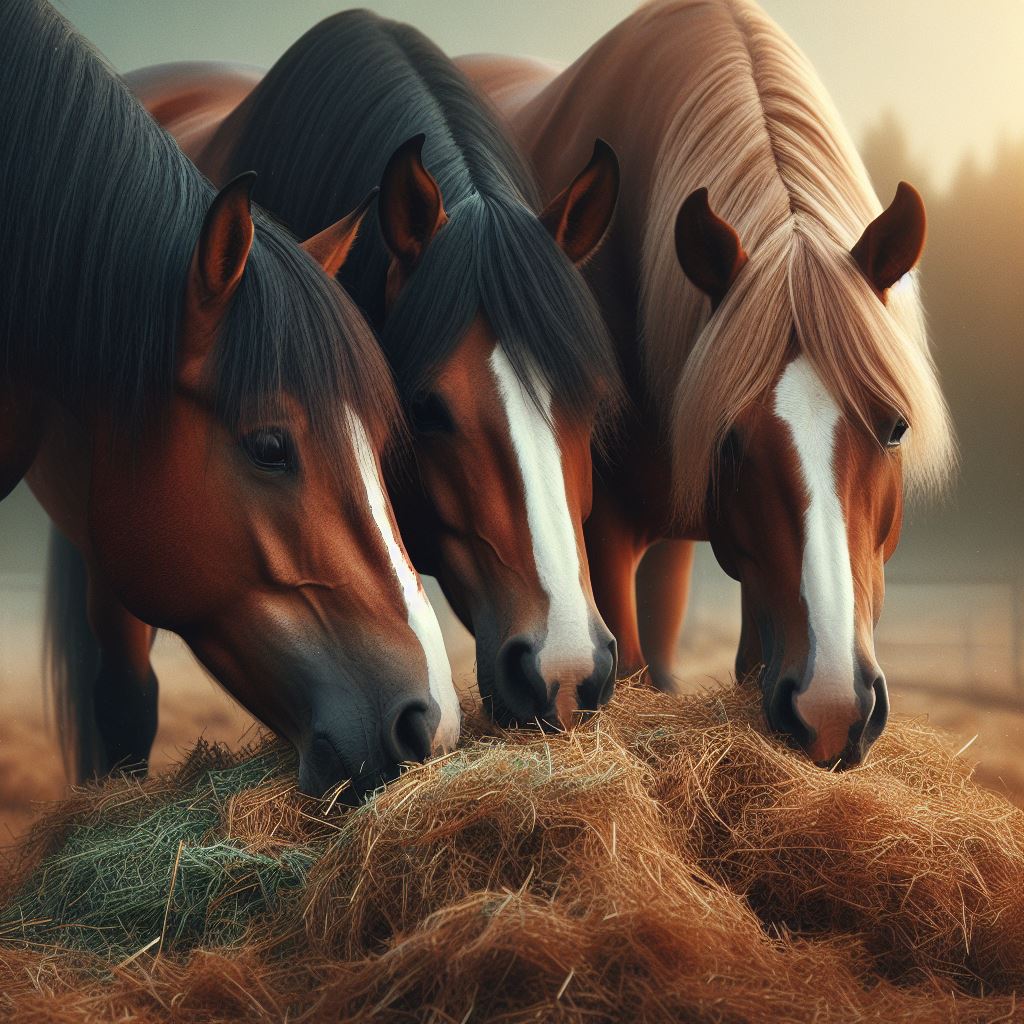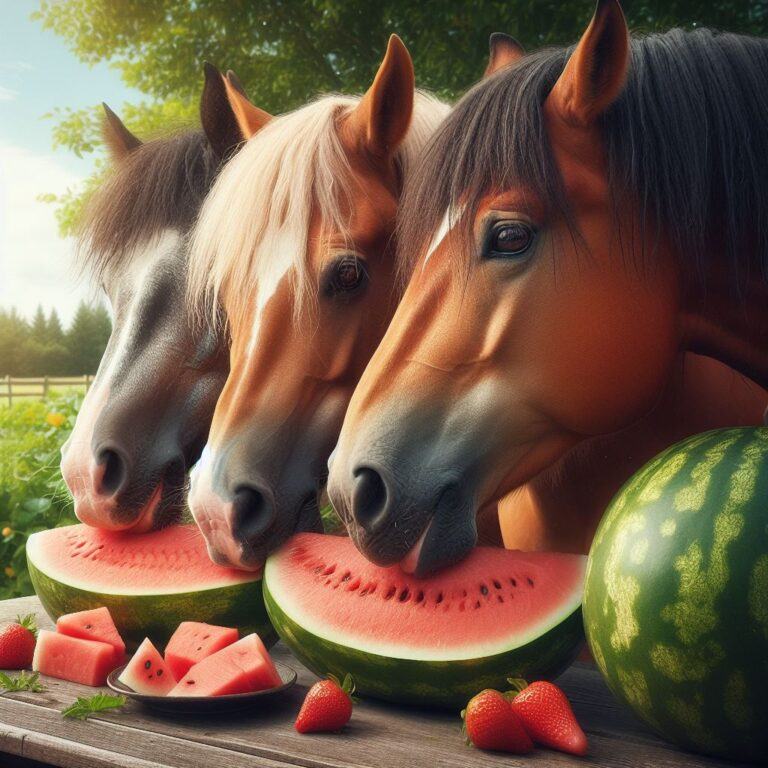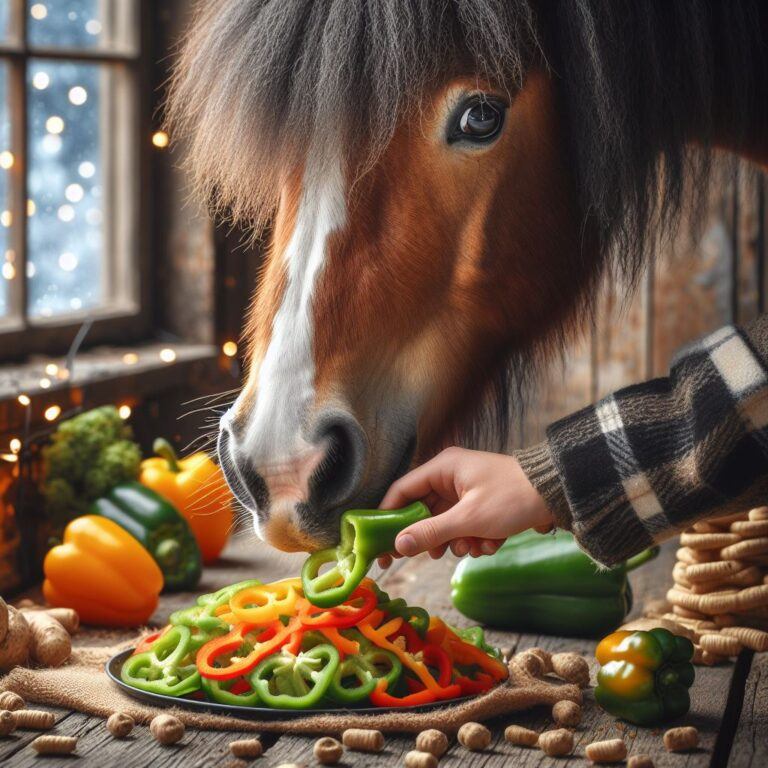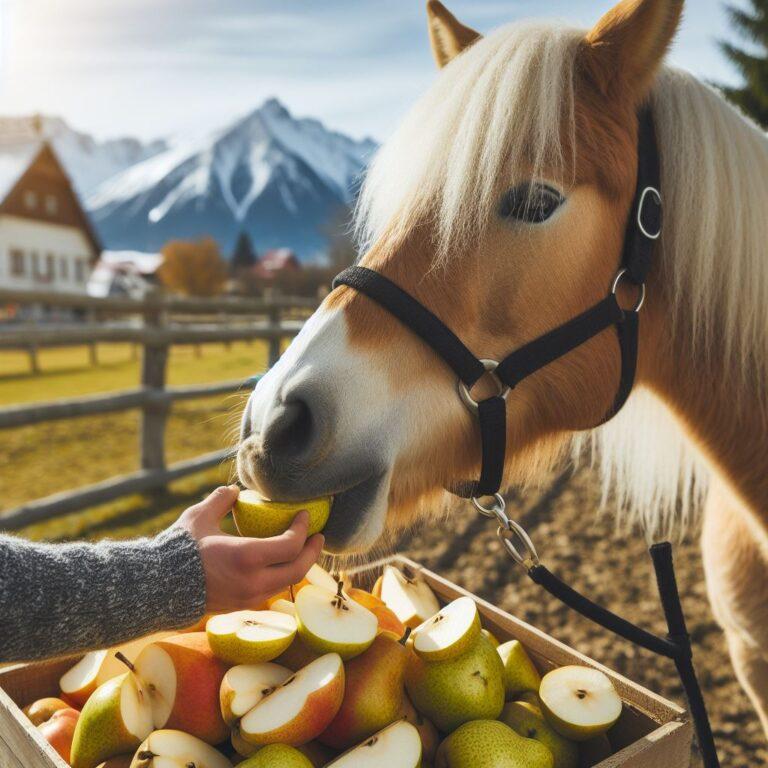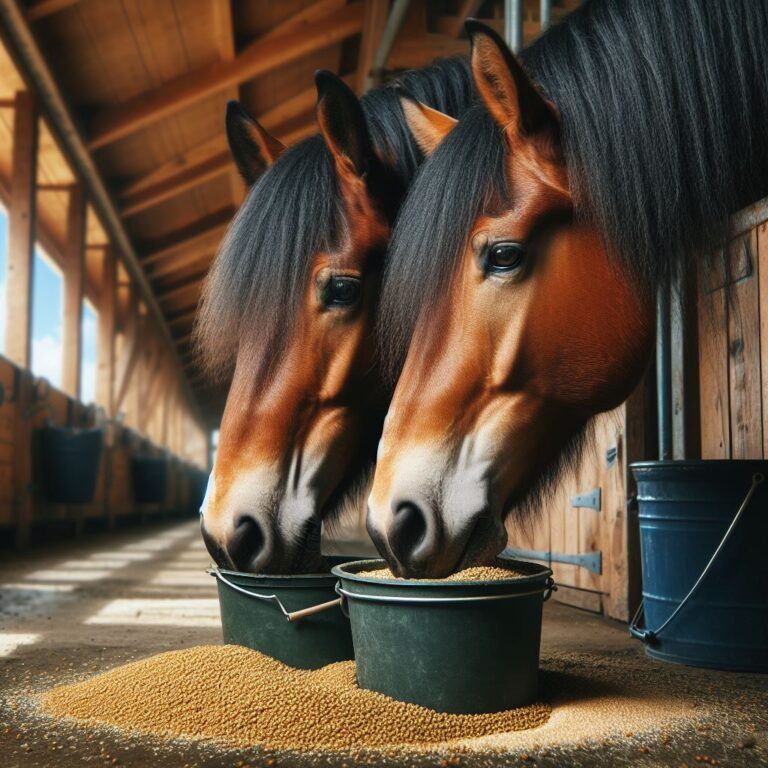Can Horses Safely Eat Alfalfa Hay
Yes, horses can safely eat alfalfa hay when it’s incorporated correctly into their diet. It’s valued among horse owners for its high protein, energy, and micronutrient content, which can be particularly beneficial for certain groups of horses like those performing at high levels of activity, lactating mares, and young horses in growth stages.
However, alfalfa hay must be fed with careful consideration to the horse’s overall dietary needs and health status.
Alfalfa hay does stand out from other forage options primarily because of its higher protein content.
This can support muscle development and repair, especially in athletes like racehorses or show horses that undergo rigorous training.
It’s also rich in calcium, necessary for maintaining strong bones and proper body functions. Yet, it’s vital to balance this with other feed types to avoid excesses that could potentially lead to health issues.
While alfalfa provides substantial energy in the form of calories, this needs to be managed appropriately to prevent weight gain in horses that may be less active.
I often advise clients to consult with a horse nutritionist or a vet before making significant changes to their horse’s diet, including introducing alfalfa hay.
These experts provide guidance tailored to the specific needs of each horse, ensuring their diet supports optimal health and performance.
Feeding Alfalfa Hay to Different Horse Categories
When it comes to feeding alfalfa hay, not all horses have the same nutritional needs. As I mentioned earlier, active horses, such as racehorses or those used in competitive sports, may benefit from the high-protein content found in alfalfa.
This protein supports muscle maintenance and growth, which is crucial for their rigorous exercise routines.
For young, growing horses, alfalfa hay can be a valuable addition to their diet. The amino acids and other essential nutrients support their development.
However, it’s important to combine alfalfa with other types of forage such as fresh grass to create a well-rounded diet and prevent imbalances, particularly in minerals.
There are certain horses, though, that may face risks when consuming alfalfa. For instance, horses prone to laminitis, a metabolic disease, may find alfalfa’s richness a problem, as it can contribute to this condition.
Horses with kidney issues should also be cautious, as the higher calcium content in alfalfa hay might exacerbate kidney problems.
For those horses that are overweight or lead a sedentary lifestyle, I always recommend feeding alfalfa hay sparingly.
It’s a calorie-dense forage, and as such, can contribute to excessive weight gain if not appropriately portioned.
Monitoring their body condition and adjusting their feed as necessary can help them manage their weight effectively.
Above all, the key is balance. While alfalfa can serve as an excellent source of nutrients, it shouldn’t overshadow the rest of the horse’s diet.
Diverse sources of forage and nutrients are essential for a horse’s health. Regular conversations with horse nutritionists or veterinarians will help tailor the feeding regimen to each horse’s specific needs and lifestyle.
How Best to Introduce Alfalfa Hay into a Horse’s Diet
When you decide to introduce alfalfa hay into your horse’s diet, the key is to START SLOW. A sudden change in diet can disrupt your horse’s gut bacteria, leading to discomfort or colic.
Always begin by mixing small amounts of alfalfa with the current forage and observe how your horse adjusts over several days.
It’s also a good idea to blend alfalfa with grass hay. This strategy ensures your horse gets a varied nutrient profile and reduces the risk of overloading on protein and calcium, which is particularly important for horses with less intense exercise routines.
Also, please pay attention to how your horse reacts to the new diet. Signs of good health include consistent weight, a glossy coat, and normal digestion.
If any issues arise, such as behavioral changes or signs of digestive distress, consult with your veterinarian immediately.
As for feeding frequency and quantity, this entirely depends on your horse’s energy requirements and current health.
A rough guideline is that alfalfa can make up to 50% of a horse’s forage intake, but this can vary widely. A customized plan working in tandem with a professional is the safest route.
Lastly, regular veterinary check-ups are essential when making any dietary changes to ensure the health and well-being of our horses.
They can provide valuable guidance and help adapt the diet as needed, keeping our horses thriving on a balanced and nutritious diet which can include alfalfa hay.

